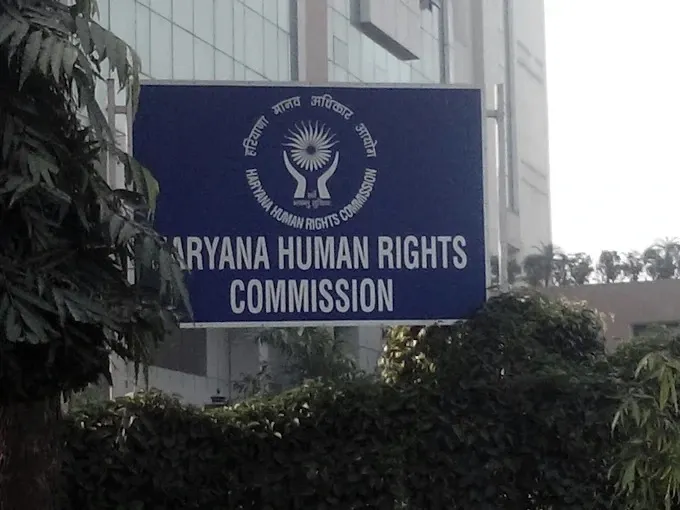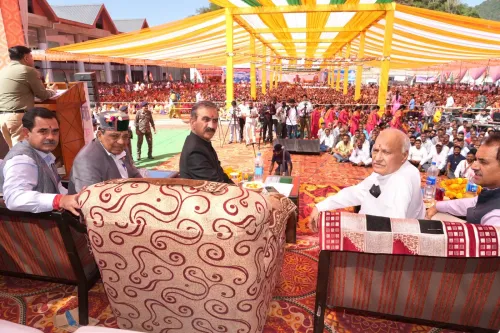Has the Haryana Rights Panel Responded to the Employee Mistakenly Declared ‘Dead’ in Aadhaar Records?

Synopsis
Key Takeaways
- Administrative errors can have severe consequences on an individual's livelihood.
- Human rights protections are critical in safeguarding dignity and fair treatment.
- Proactive intervention by authorities can rectify wrongs and restore justice.
- Awareness of rights is essential for individuals facing bureaucratic challenges.
- Public accountability in governance is vital for ensuring fair treatment.
Chandigarh, Aug 18 (NationPress) The Haryana Human Rights Commission has taken suo-motu cognizance of a media report concerning a serving employee of the Public Health Department from Rohtak, who was allegedly denied his salary in the post-COVID period due to his Aadhaar record incorrectly listing him as “deceased”.
This is despite the fact that he is alive and continues to fulfill his duties regularly.
This administrative error has reportedly led to the employee being deprived of his lawful wages for a significant duration.
Upon evaluation, the Commission found that the Public Health Department failed to update the employee’s record on the HKRN portal, even though they were aware that the “deceased” status in Aadhaar was incorrect.
This lack of action has resulted in the complainant experiencing prolonged financial distress and mental anguish, undermining his right to work with dignity and creating unnecessary uncertainty.
The Commission expressed concern that such errors could severely impact an individual’s livelihood, self-esteem, and peace of mind.
The full bench of the Commission, which includes Chairperson Justice Lalit Batra and members Kuldip Jain and Deep Bhatia, pointed out that this treatment appears to violate Article 7 of the United Nations International Covenant on Economic, Social and Cultural Rights (ICESCR), which acknowledges the right to just and favorable working conditions, including fair remuneration that ensures a decent living for workers and their families.
The failure to pay wages for work performed constitutes a breach of the employee’s human rights, particularly the right to livelihood and dignity as protected under Article 21 of the Constitution and reaffirmed in international human rights treaties.
The department’s negligence constitutes an arbitrary deprivation of earnings, impairing the complainant’s ability to support himself and his family.
Reflecting on the situation, the Commission recalled the sentiment from Shakespeare’s renowned play 'Julius Caesar' that 'sometimes the dead may exert greater influence than the living'.
However, the Commission noted that this case presents a stark reversal of that notion: a man who is undeniably alive, diligently performing his duties, is being officially regarded as deceased. This mistaken classification not only deprived him of his rightful wages but also subjected him to indignity and unnecessary hardship.
Disregarding the service of a living employee in this manner is an administrative failure that the Commission cannot ignore.
Having identified prima facie evidence of administrative negligence and violation of the complainant’s rights, the Commission has ordered immediate measures to restore the employee’s salary, rectify all records, and ensure that no employee encounters such a peculiar and unjust situation in the future.
The Commission has requested a report on the necessary corrections to the complainant's Aadhaar record from the Additional Deputy Commissioner, Rohtak, and the Commissioner and Secretary, Citizen Resources Information Department (CRID), before the next hearing on September 23.









